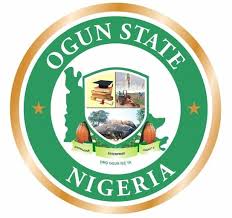Ibara, the nerve centre of economic and social activities of Abeokuta, is one of the most prominent traditional towns in the city, hosting most of its banks and commercial ventures.
The history of Ibara commenced with the breakup of the once prosperous Oyo Empire, when the Egbado, in an effort to avoid the insurrections and revolts which greeted the decline of Oyo migrated to settle partly in present day Ilaro and Ibara areas of Abeokuta.
These were about the same time when potential political successors to the power of the broken empire like Ibadan, Ijaiye, Egba, and the Ijebu grouped or regrouped to form separate political systems. Ibara people traces their genealogy to the Yoruba group of Egbados who occupy present Yewa at the western end of the Nigerian boarder to the Republic of Benin.
Originally from Ile-Ife, the people ended their century-long sojourn in Oyo after incursions of Usman-Dan-Fodio who left the city, capital of the empire, badly damaged.
Cultural History
The hunter and farmer descent of Egbado migrated through Igbeti along Oko Oyi River to former trade routes between Oyo Empire and Port Novo. Ilaro town was founded by one of these hunters who was also a warrior, Aro from Oyo.
More people like him joined, forming a trade centre late in the 18th century. Though the town had been built on a militarily advantageous hill, called Igbo Aje, from where advancing enemies could be easily sighted, the Egbado were attacked often by Dahomian marauders who wanted slaves.
From 1862, persons like Gan-un and his brother Aro proceeded to settle in present Ibara, with the latter occupying the present site of the Psychiatric Hospital in Abeokuta named after him.
During the reign of the Olubara Lafa some of the Egba clans from Odo Ona in Ibadan began to settle nearby.
Tradition
The Olubara crown was resuscitated 14 April 1952 after ninety years of interregnum. The Olubara takes his residence close to Omida market with the ancient crown in his custody.
Traditionally he enjoys absolute powers which trickles down to the building block of administrative units, compound of families usually named after the first settlers or the most important person of those cluster of families.
From some of these compounds are appointed chiefs who doubles as Olubara’s emissary or special adviser. Like many other Yoruba towns, the Olubara is assisted in his administration by these chiefs, and they hold tittles which are mostly hereditary.
The Balogun is the war chief whose office is in modern times reduced to mere relic due to non-existence of communal wars.
He is nevertheless an historically important associate of the crown, like the Oluwo Apena, who unlike others adds a spiritual angle to his functions, being the head of all traditional cults and fraternities.
The Oluwo Ibara specifically occupies a little more complex office and he calls often at the palace adorning an intricate white regalia. Iyalode, the most senor female chief in Ibara is also hailed as Iya Olomo wewe, or mother of innumerable kids.
In ancient times she provided the domestic backing for troops and rallied the support of their wives. Of all the chiefs, one whose role is most comparable to that of the Prime Minister is the Balogun as he is one who holds sway in the absence of the Olubara.
The Olubara is chosen by a committee of prominent chiefs from any of the ruling houses of Lafa, Lalubu, Aiboyede, and Adubiwaji.
Choice is rotated among these houses descended from distinguished patriarchs who had occupied the position at a time in history.
The Olubara seat, riddled by too short reigns was unoccupied for 90 years till 1952 when Egbado people of Abeokuta and Lagos decided to reestablish it.
Festivals
Gelede is celebrated annually, a masquerade-like ceremony where wood masks with tribal marks are worn.
The mask may also mimic features of animals like dog, horse, or alligator. Gelede is often dressed in female attire with carvings, painted hair, large bust and ornaments.
Also observed annually is the Efe social and award night which feature comedy and praise singing. Opportunity provided with this gathering of Ibara people is also used to rebuke evil doers
*Credit: YewaNewsExtra
